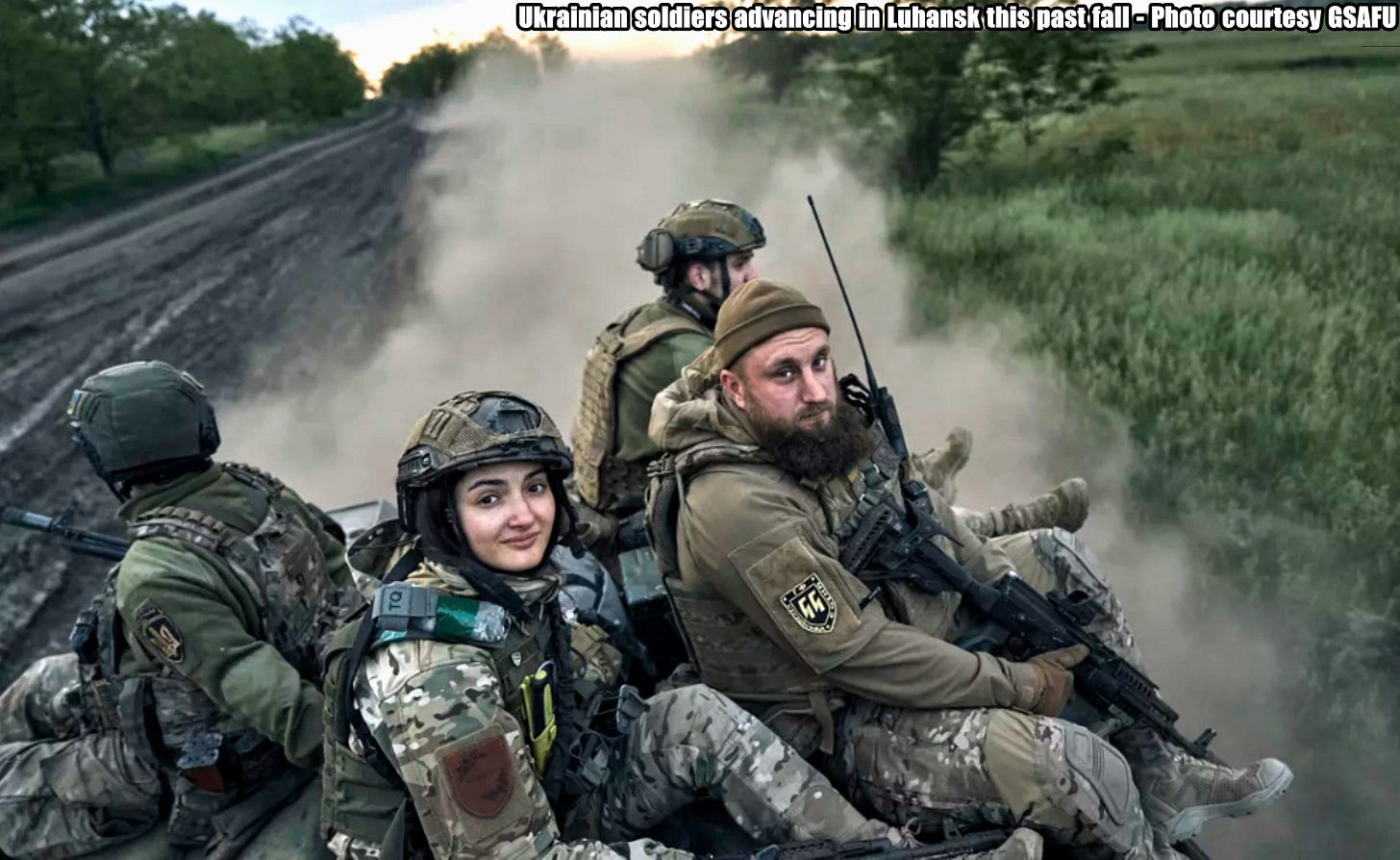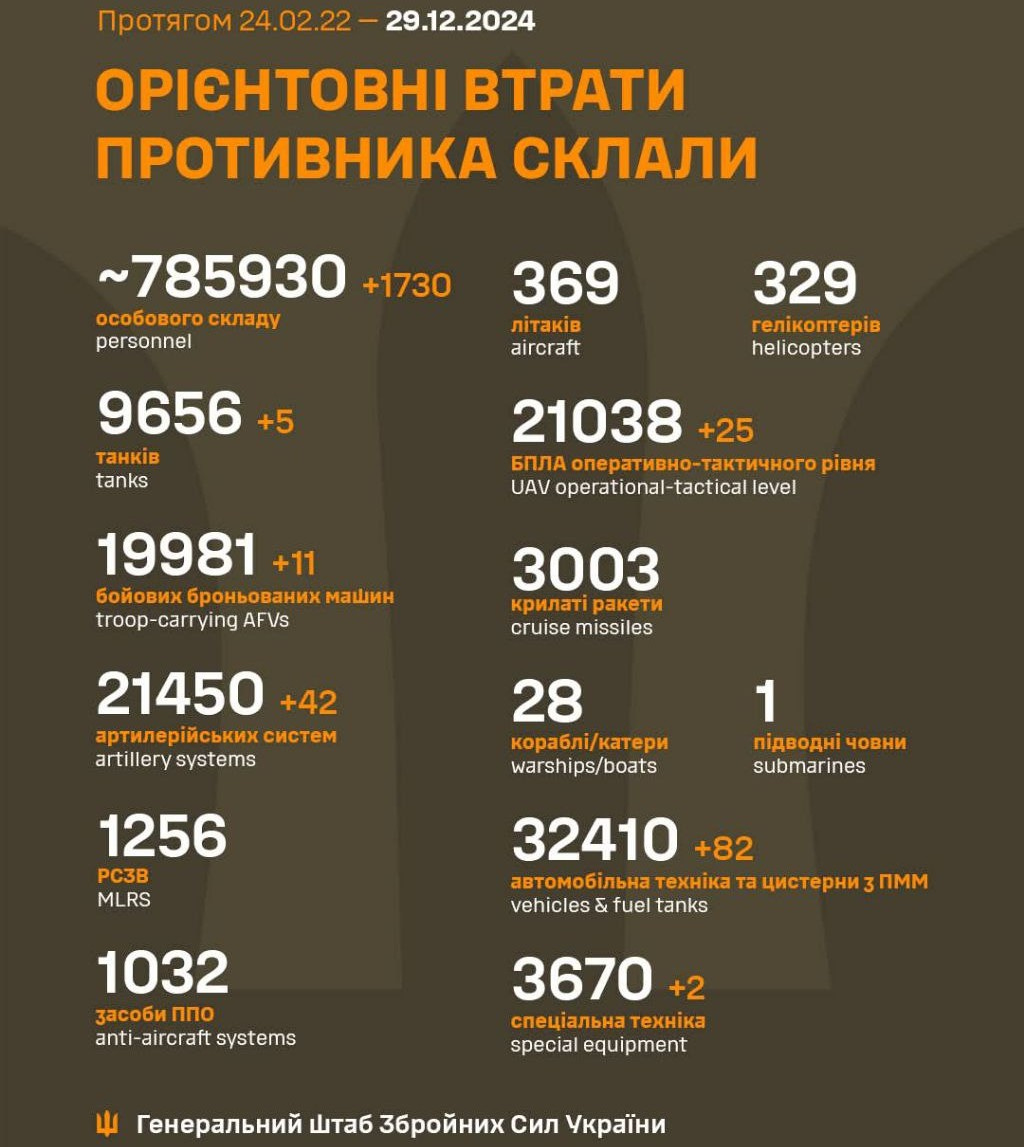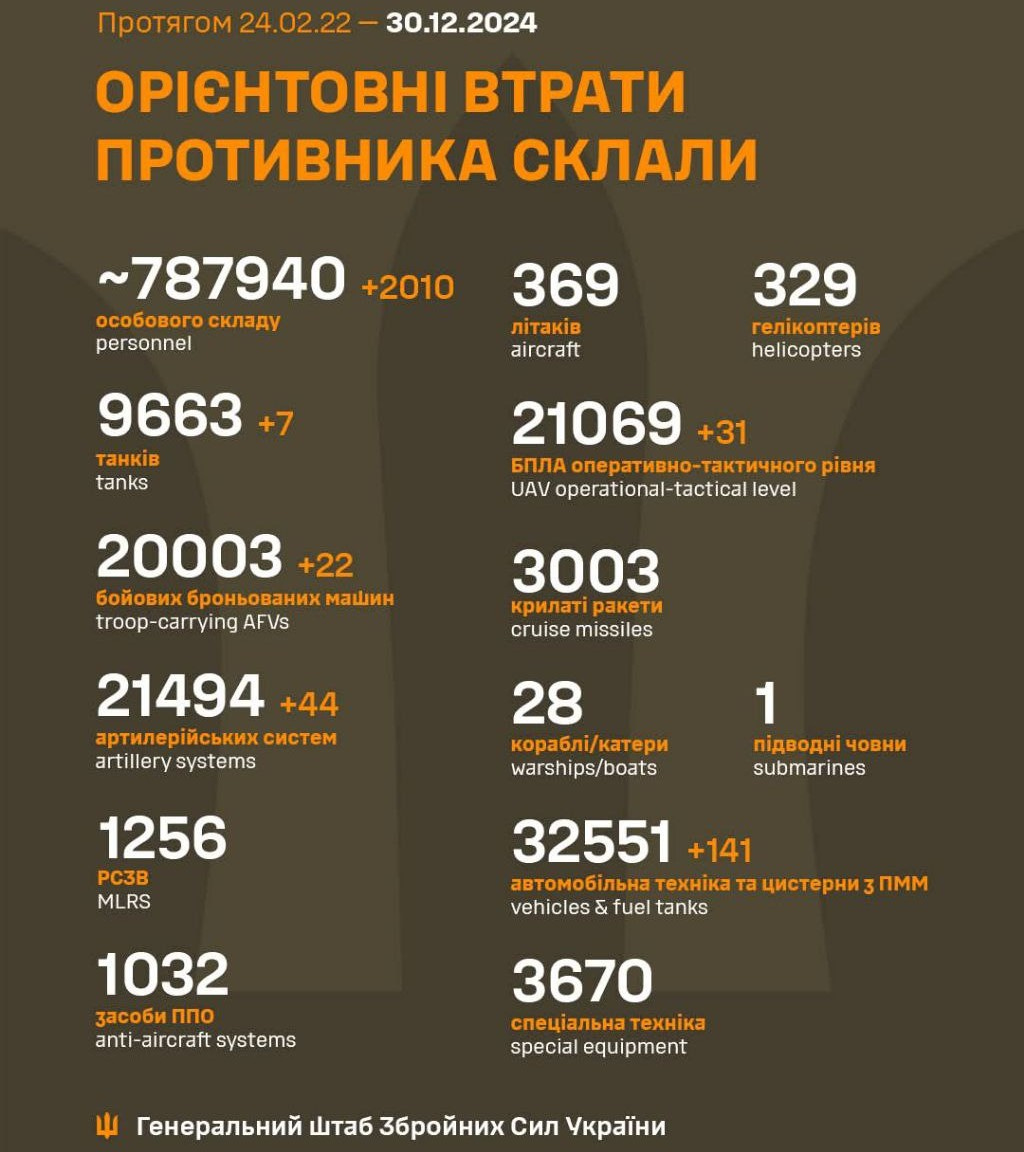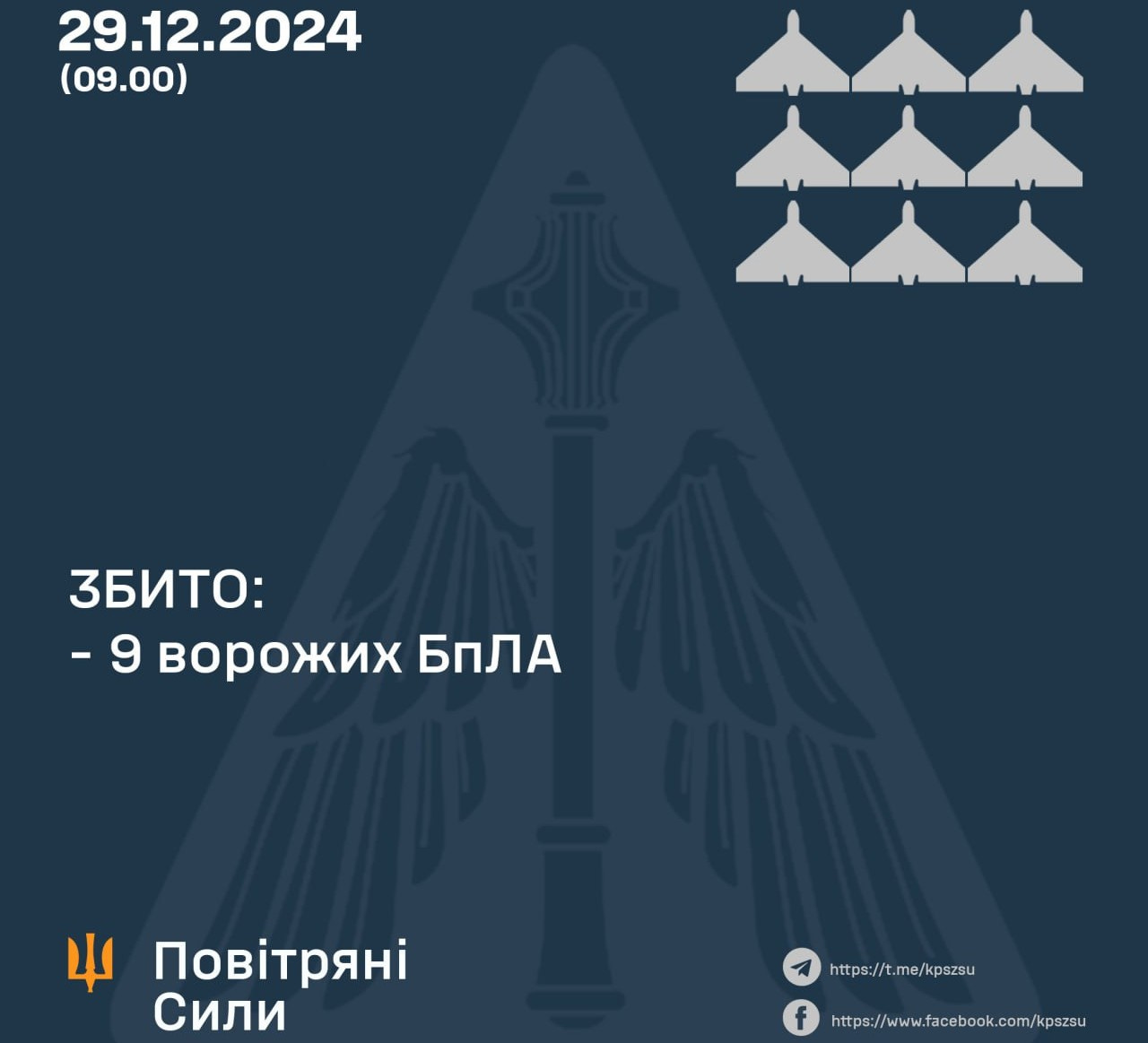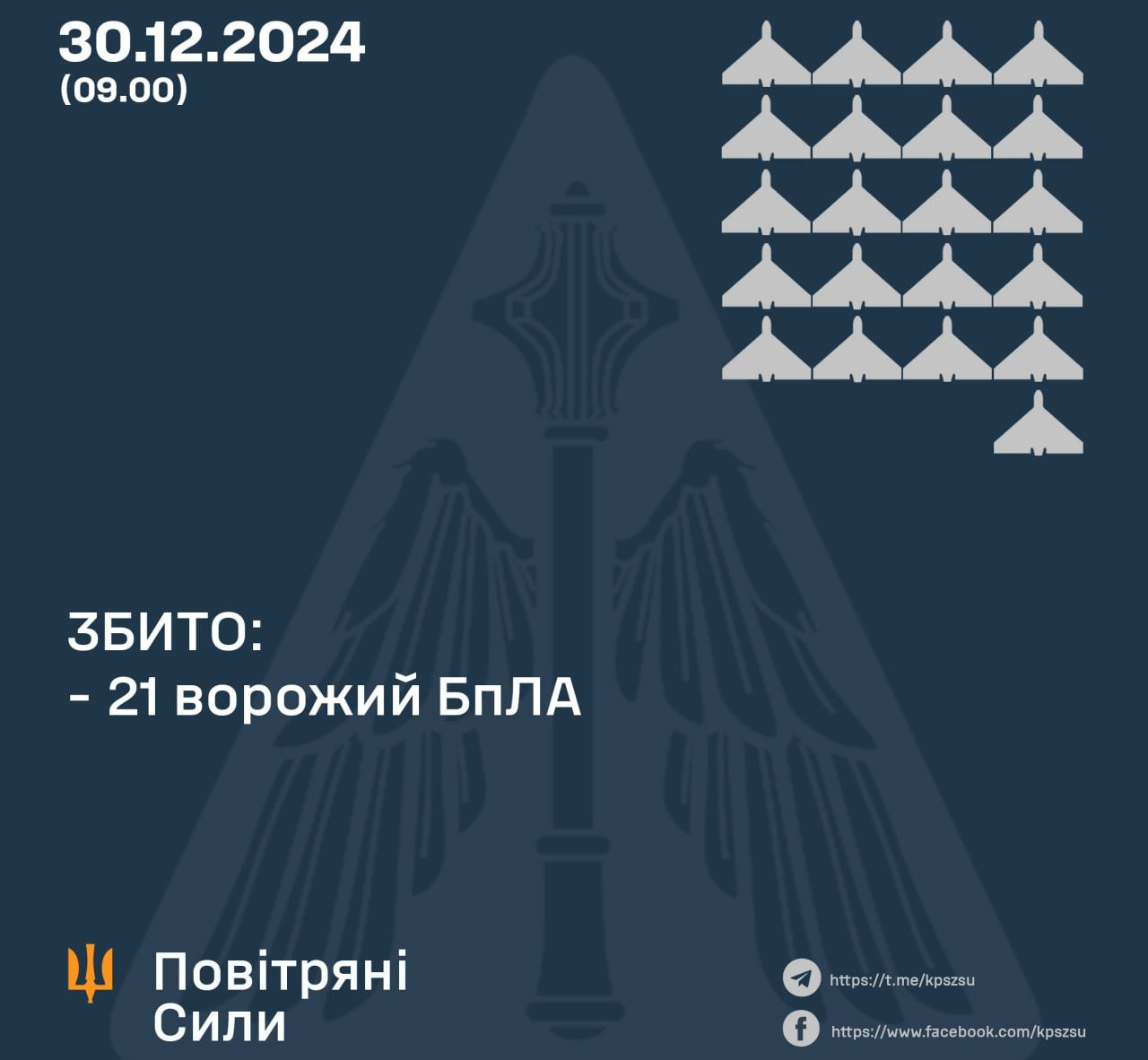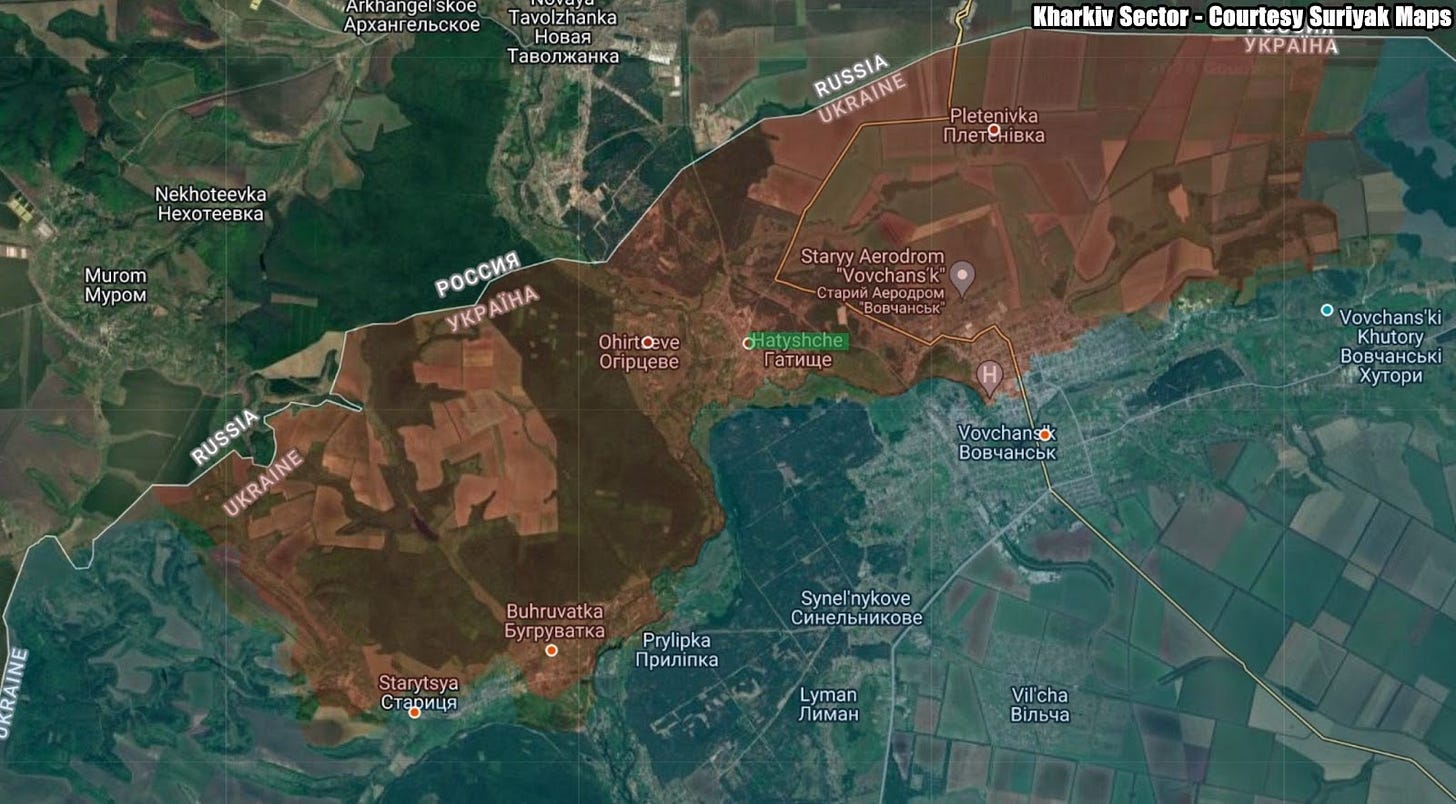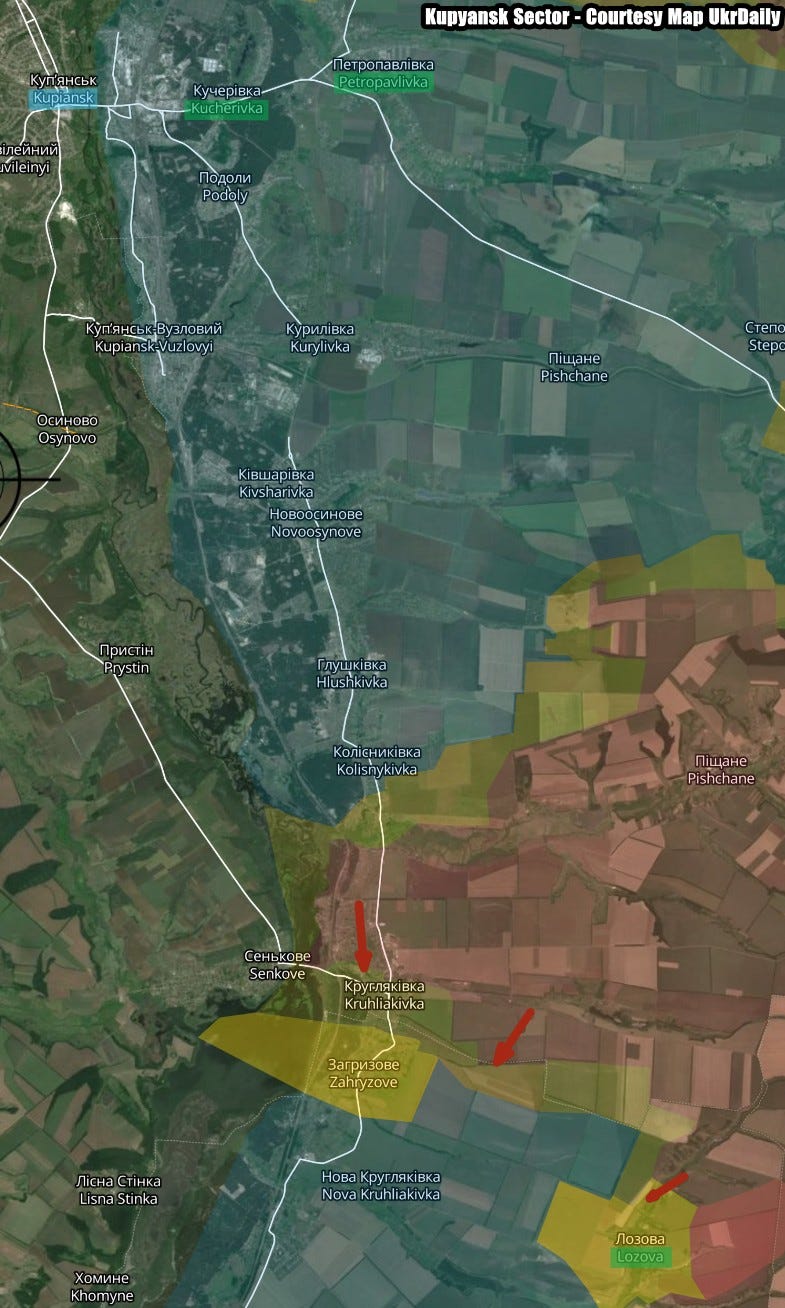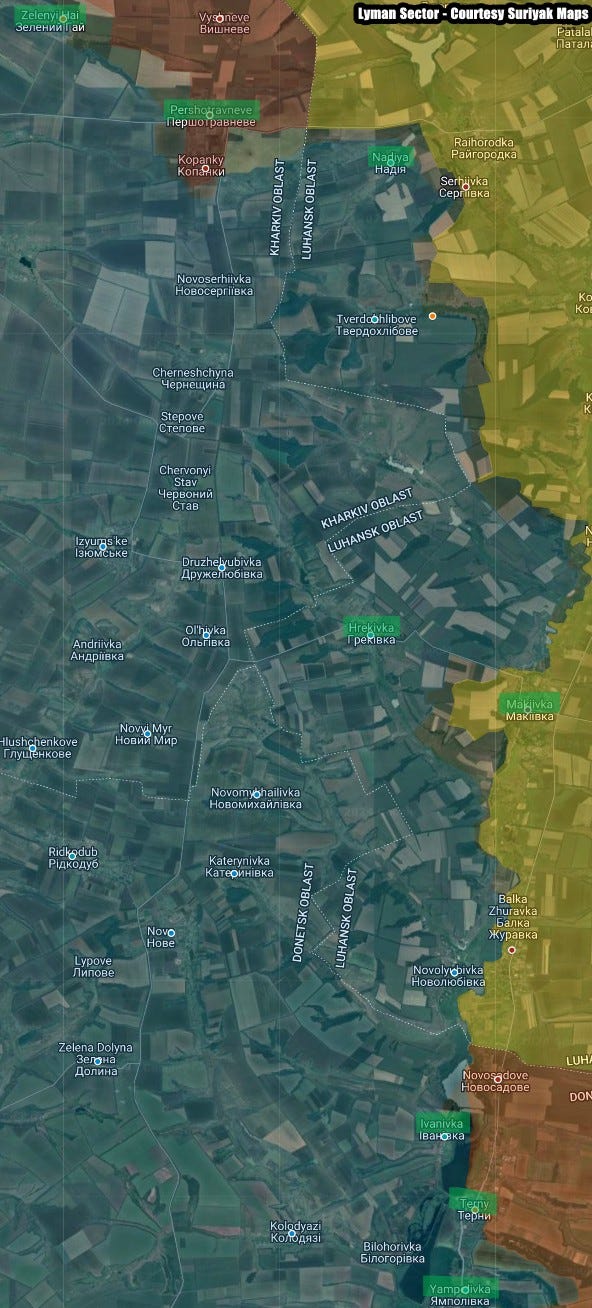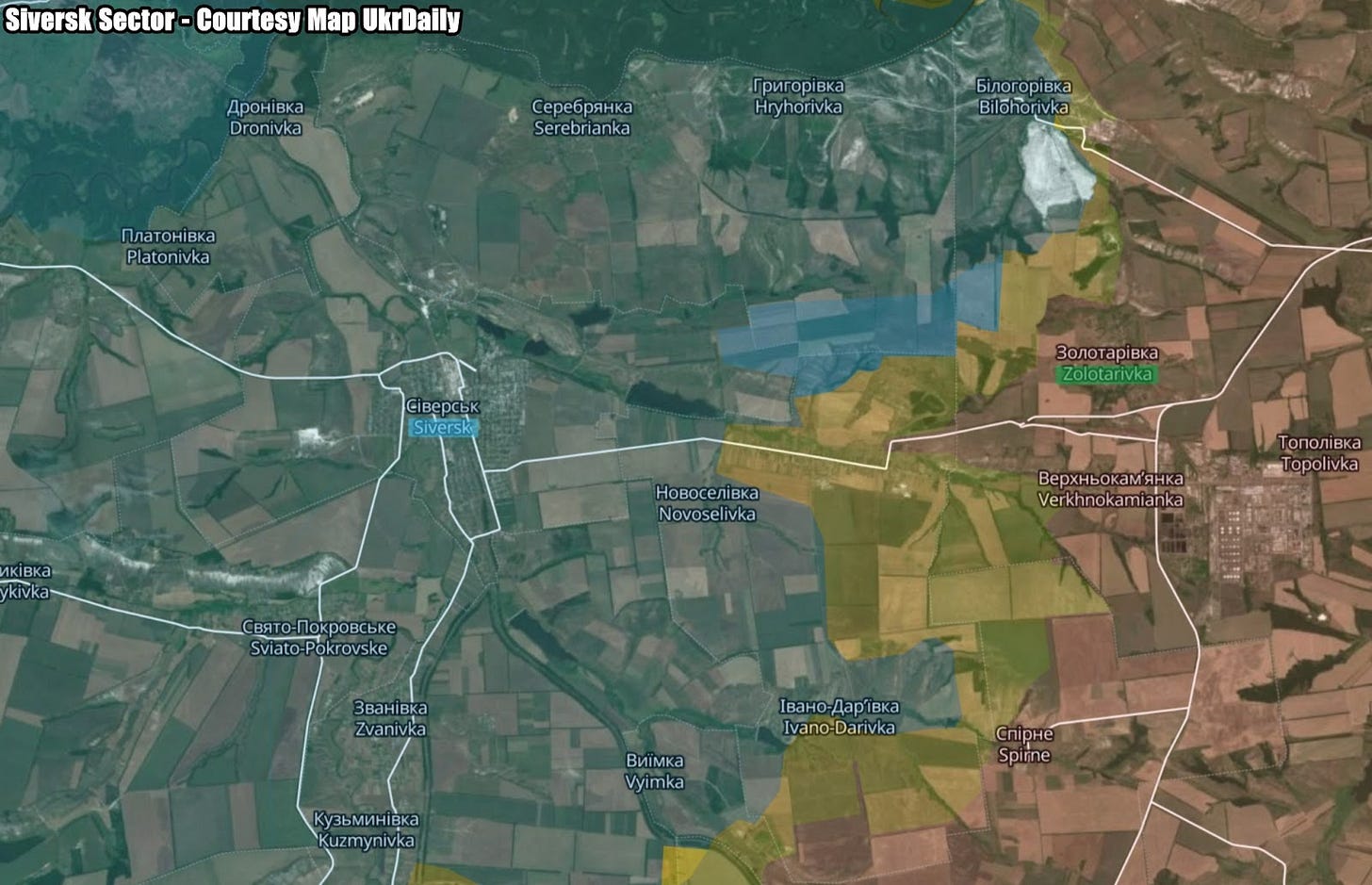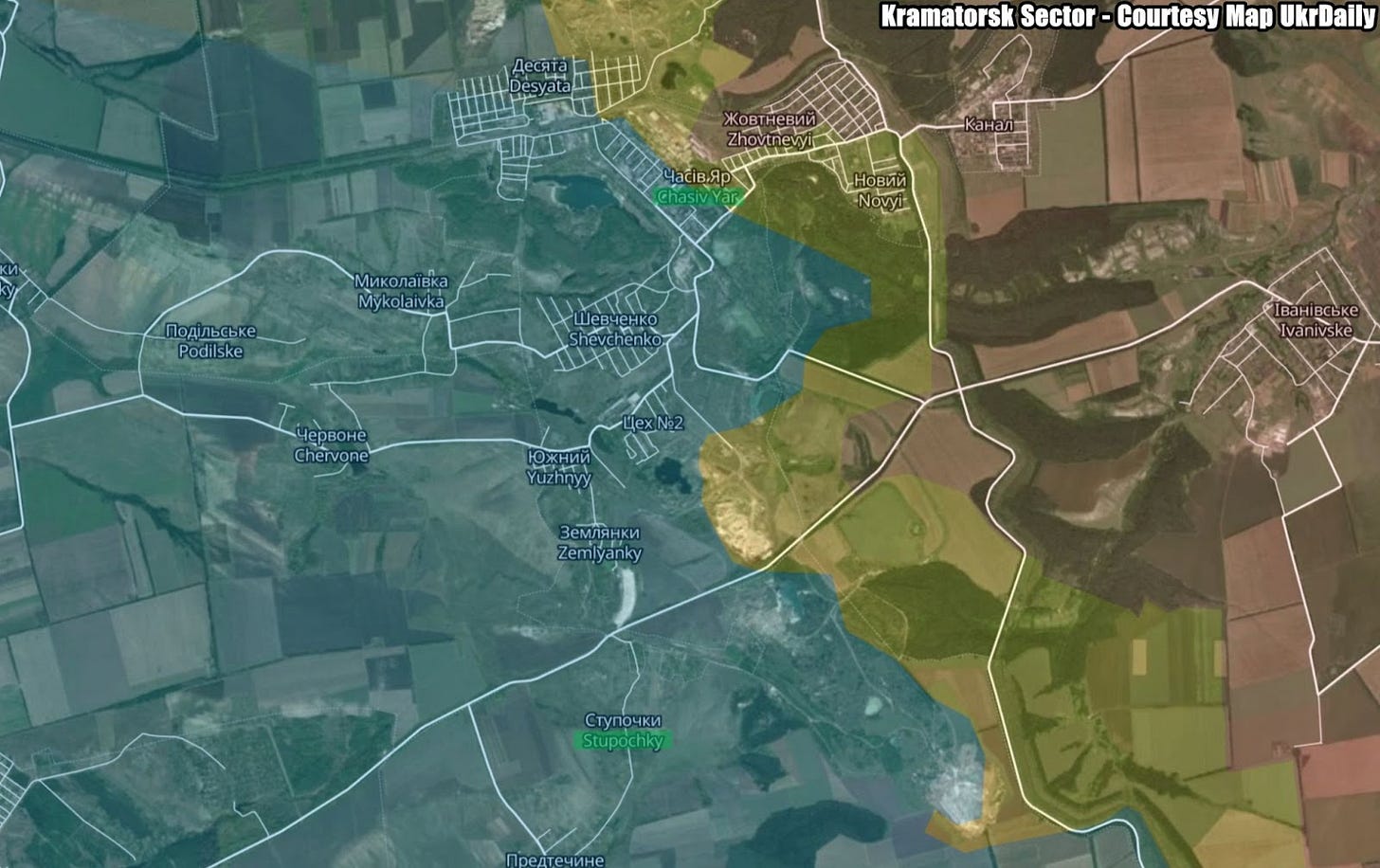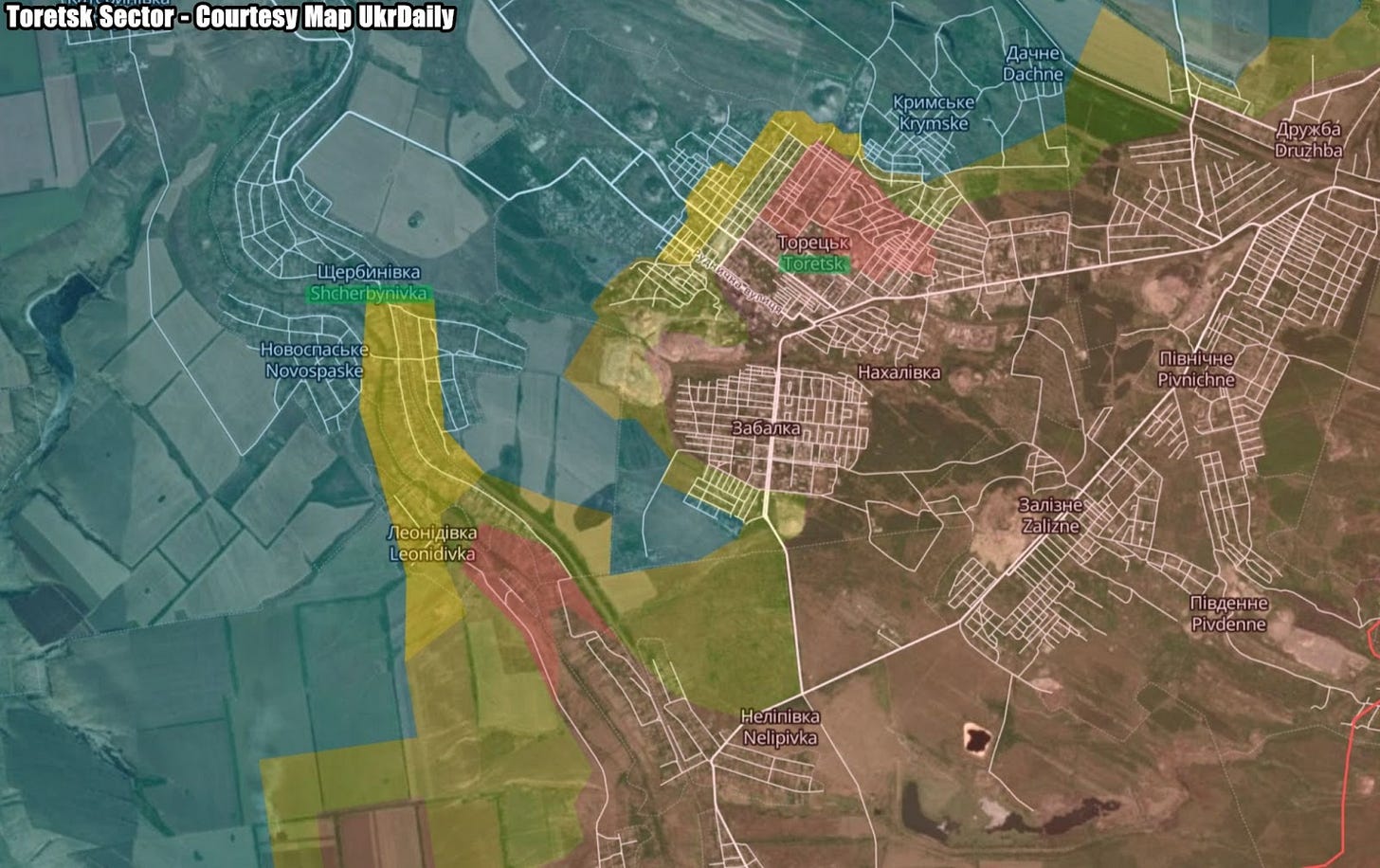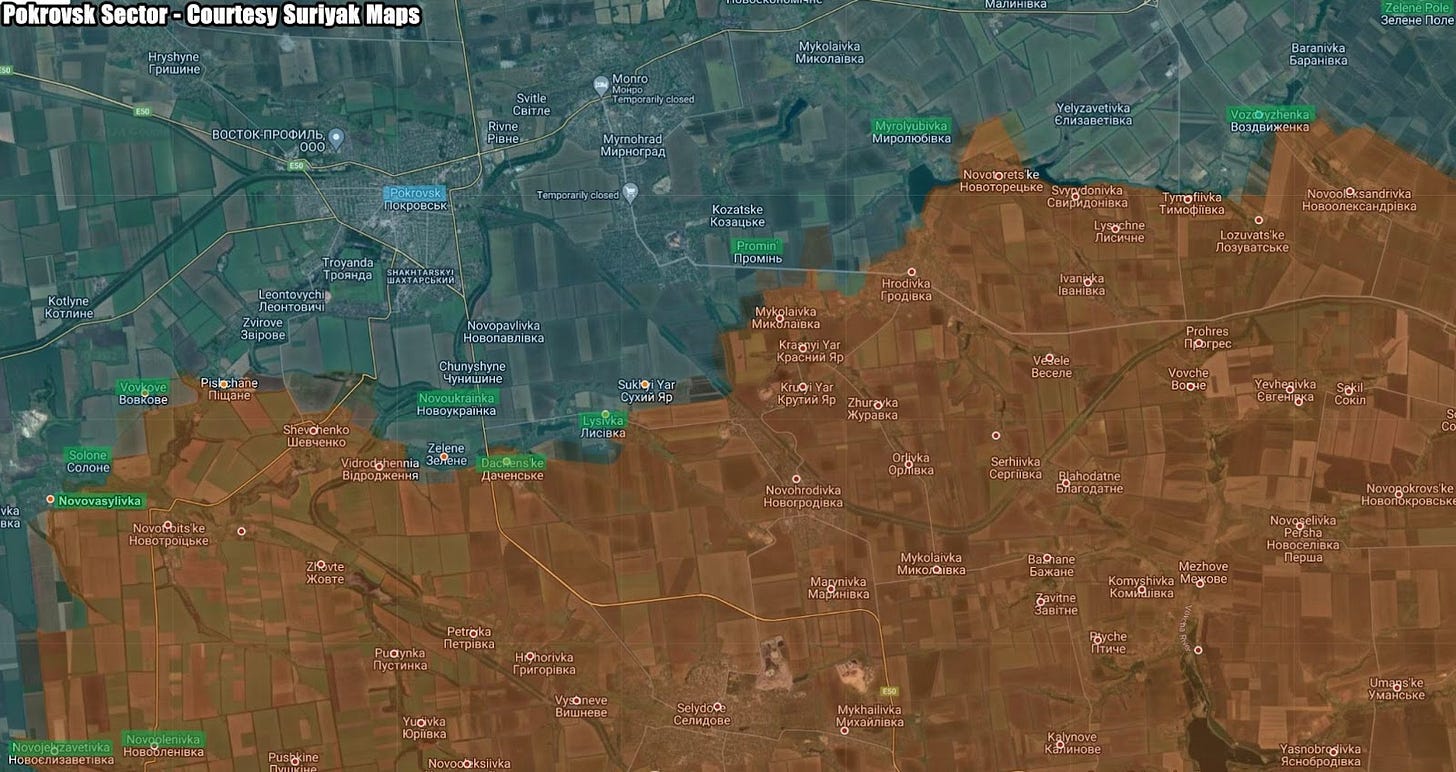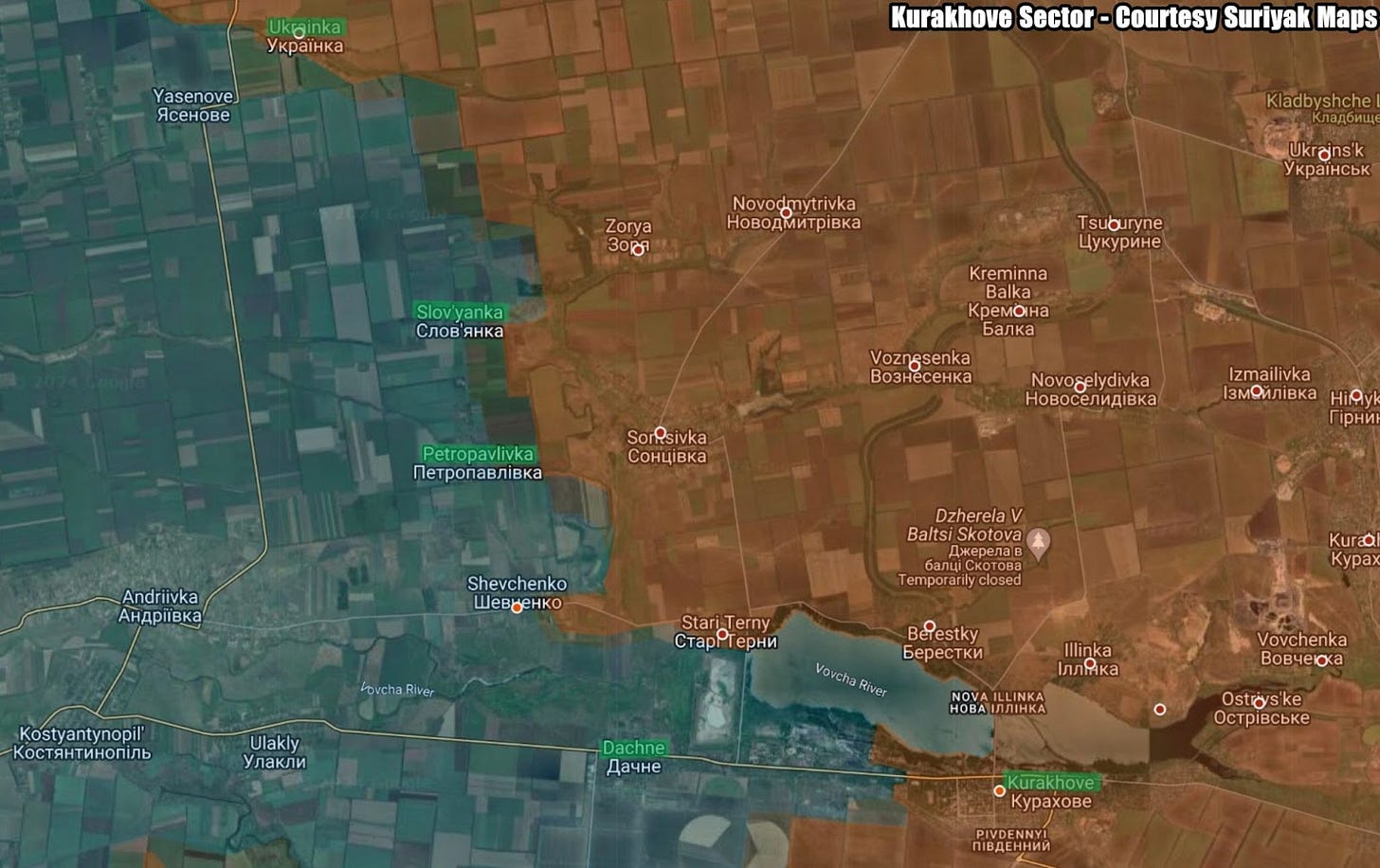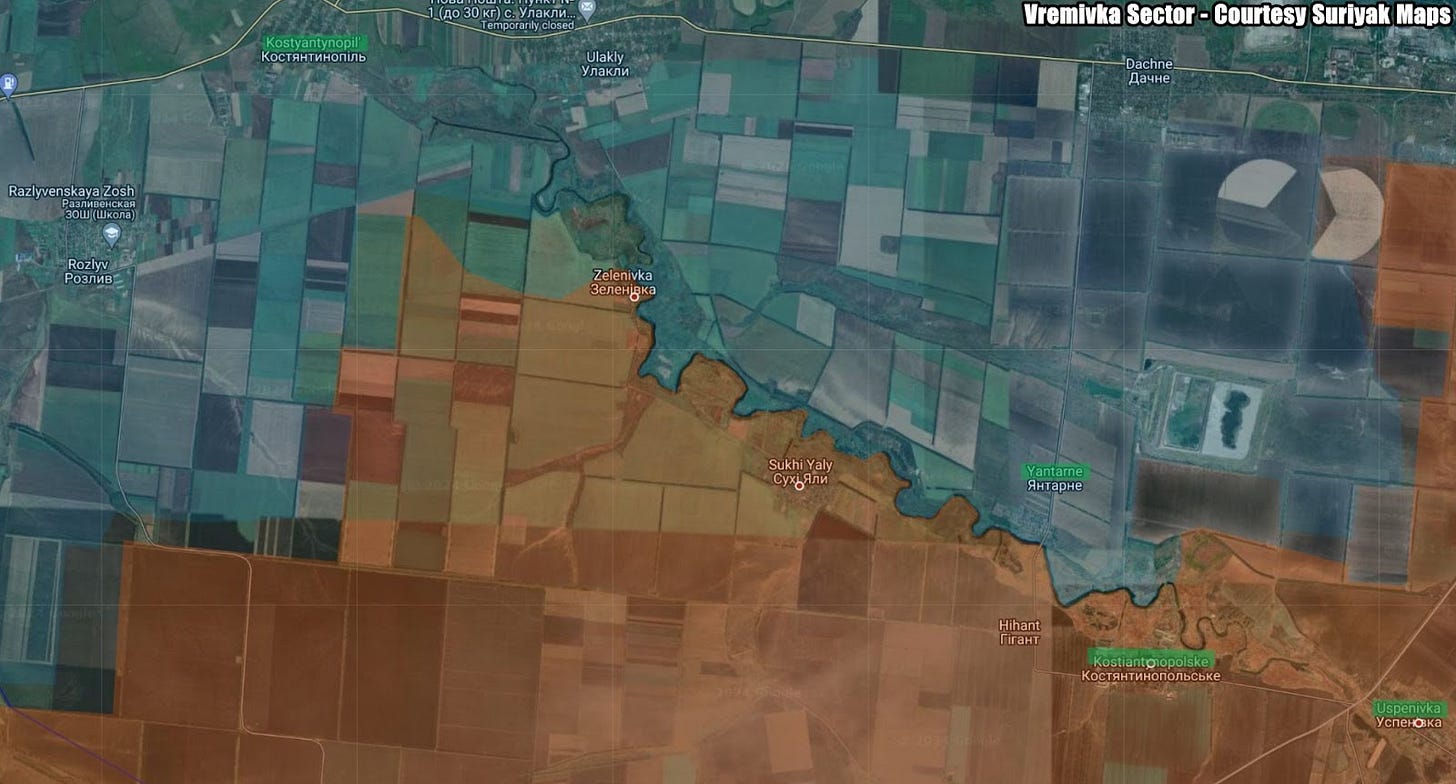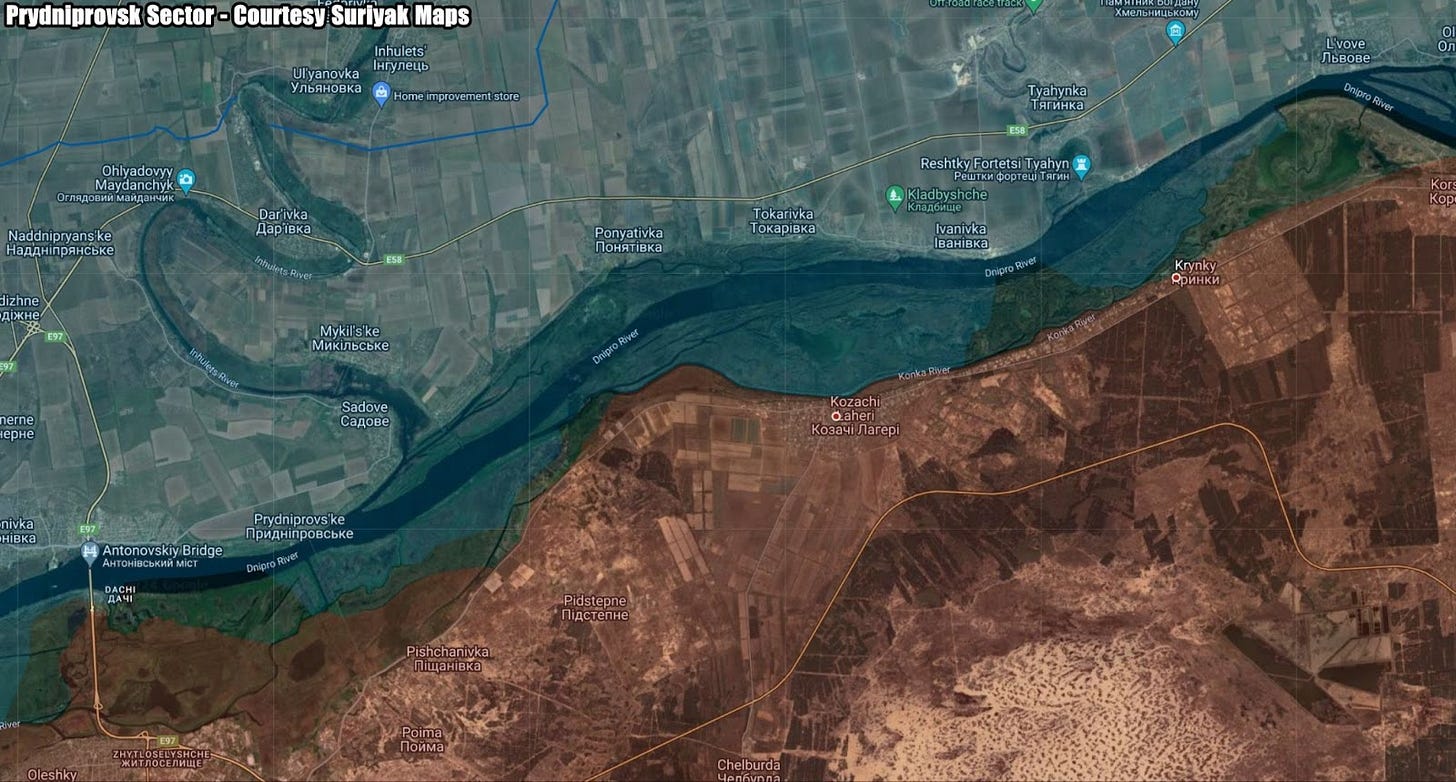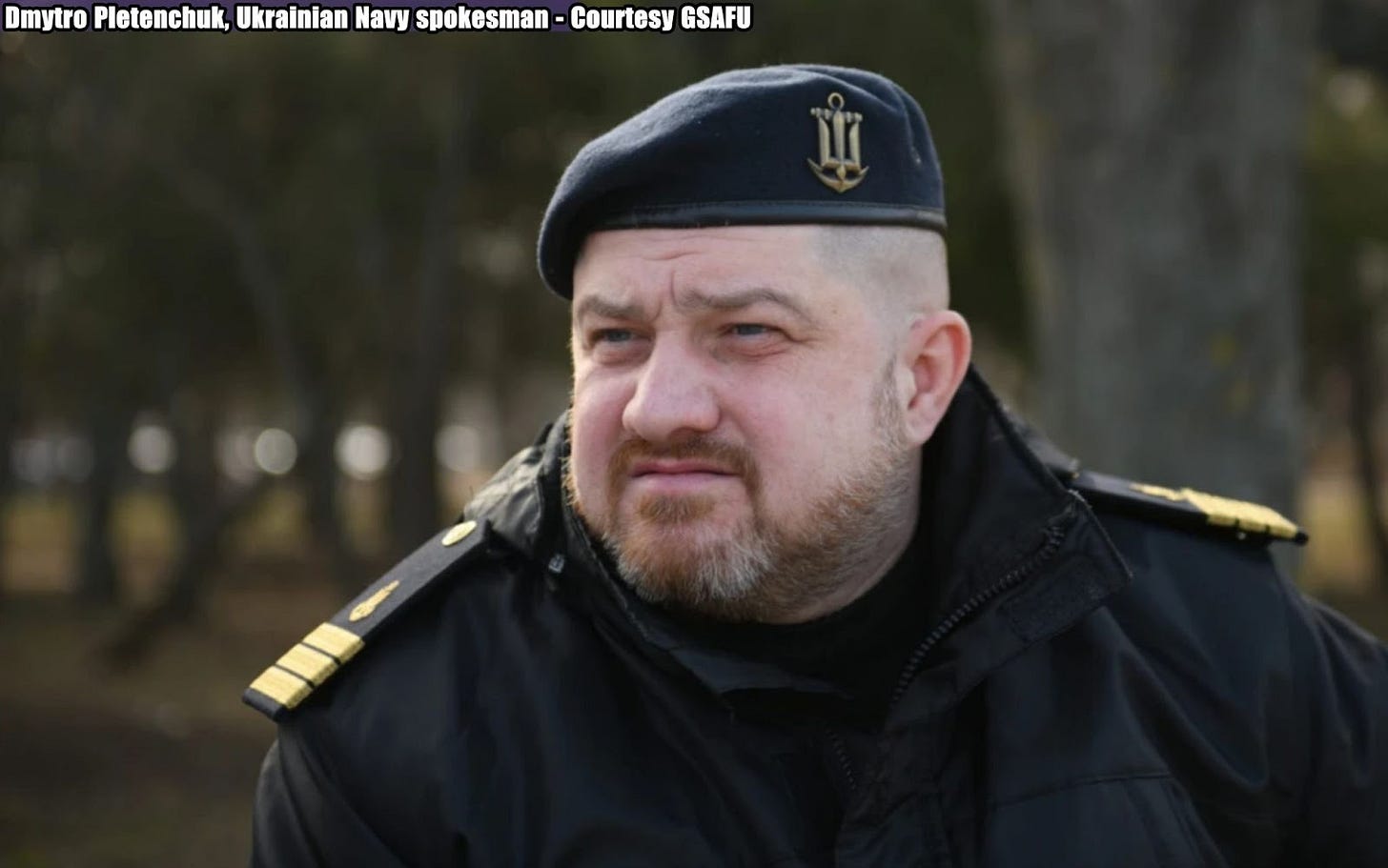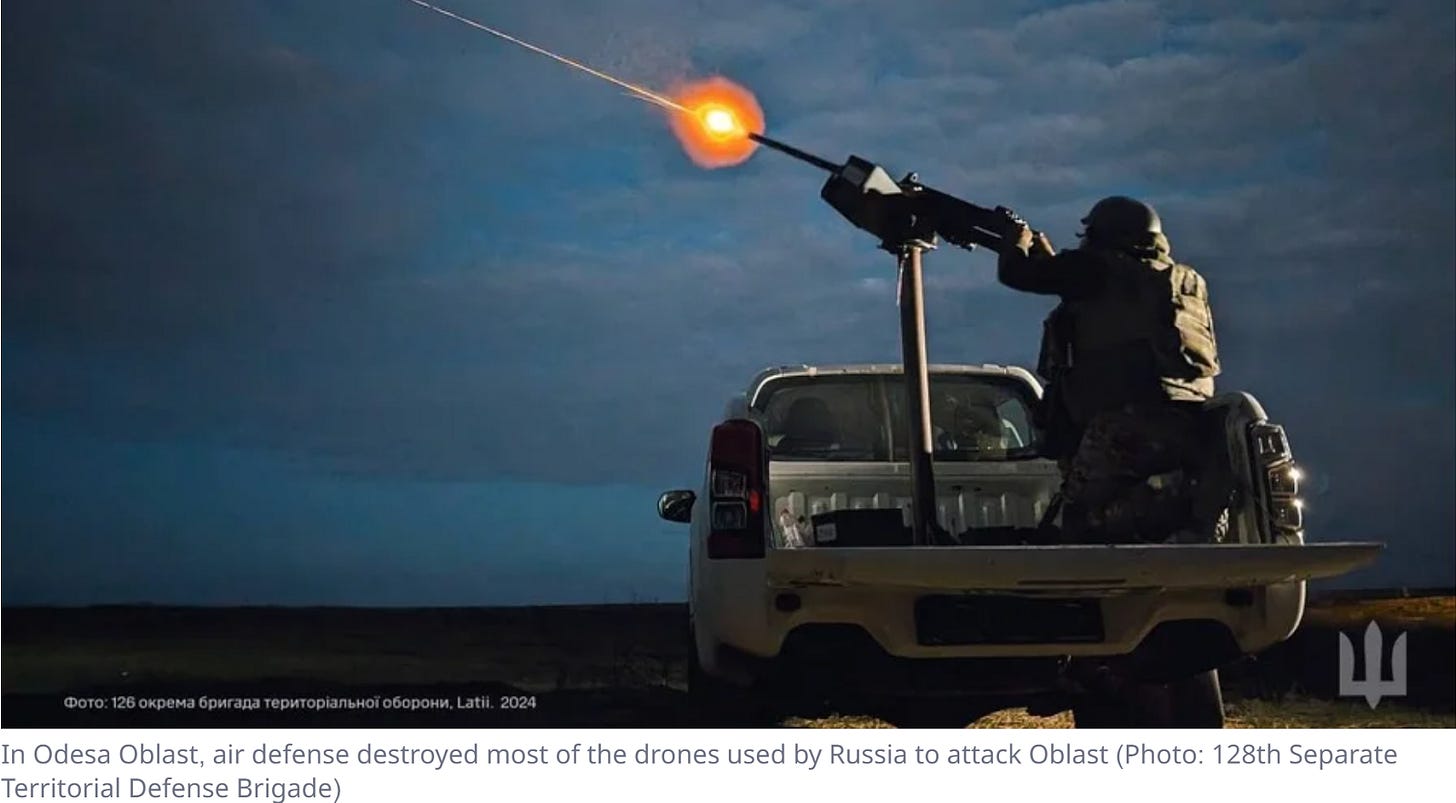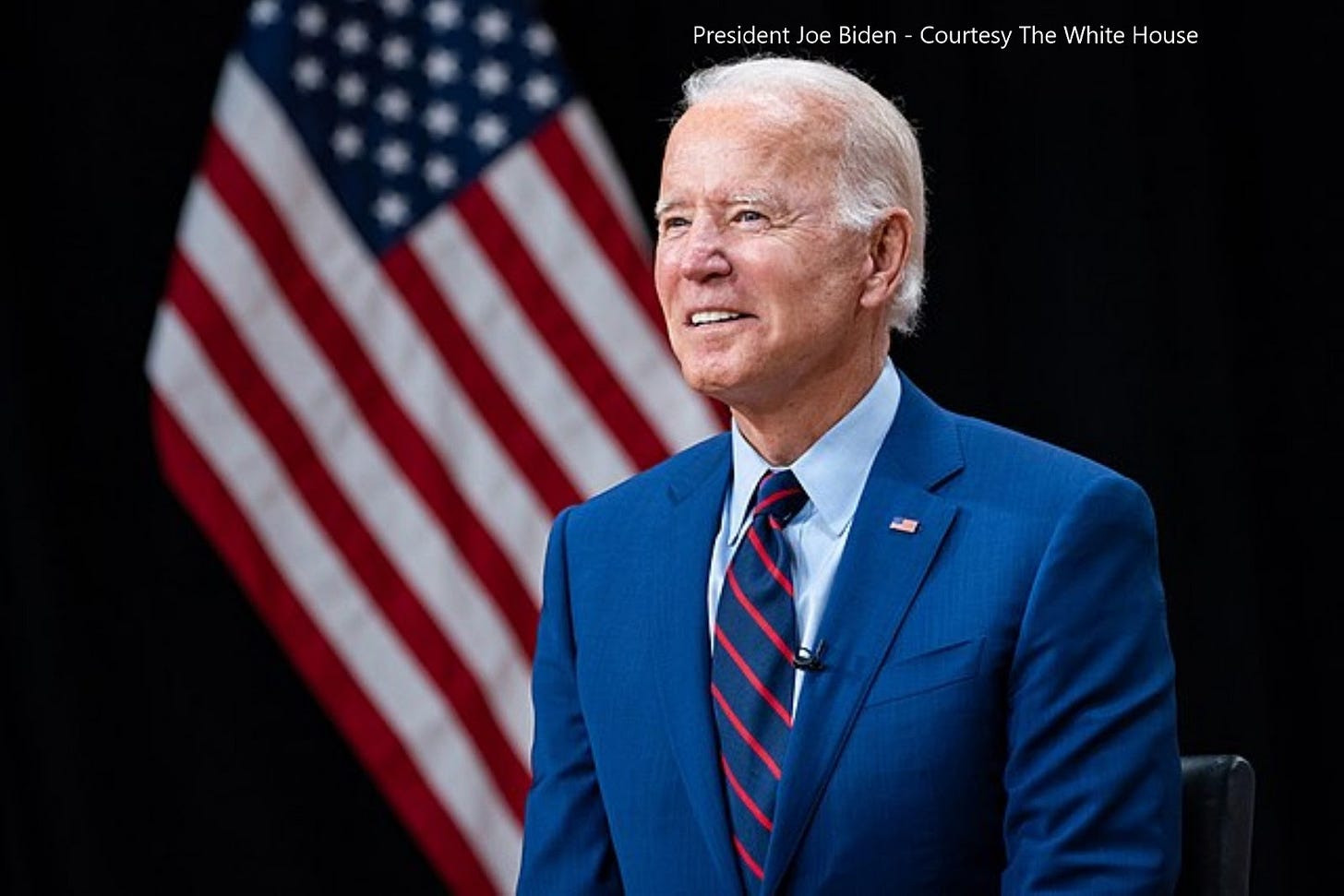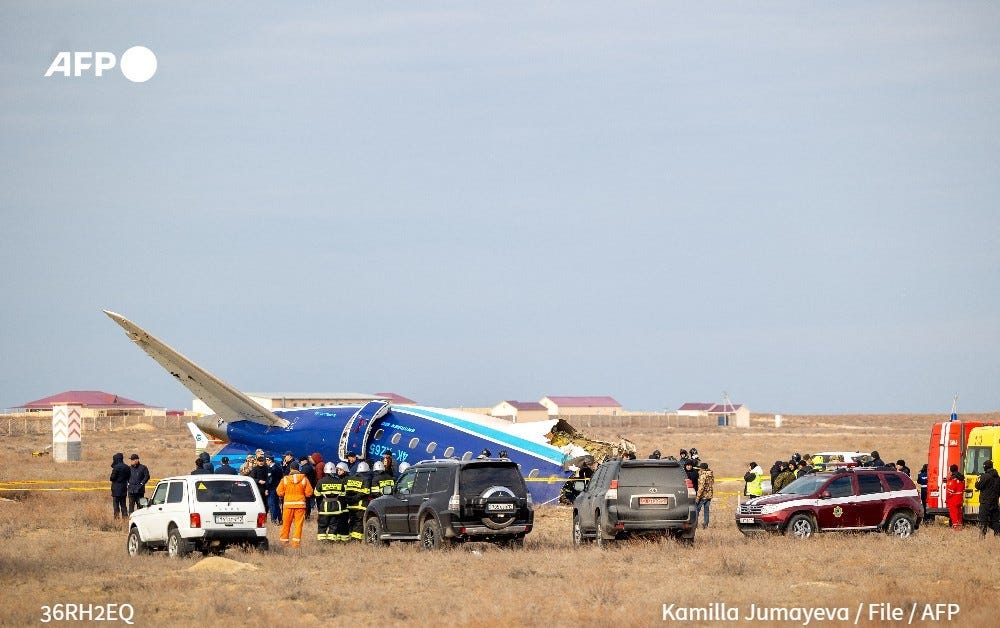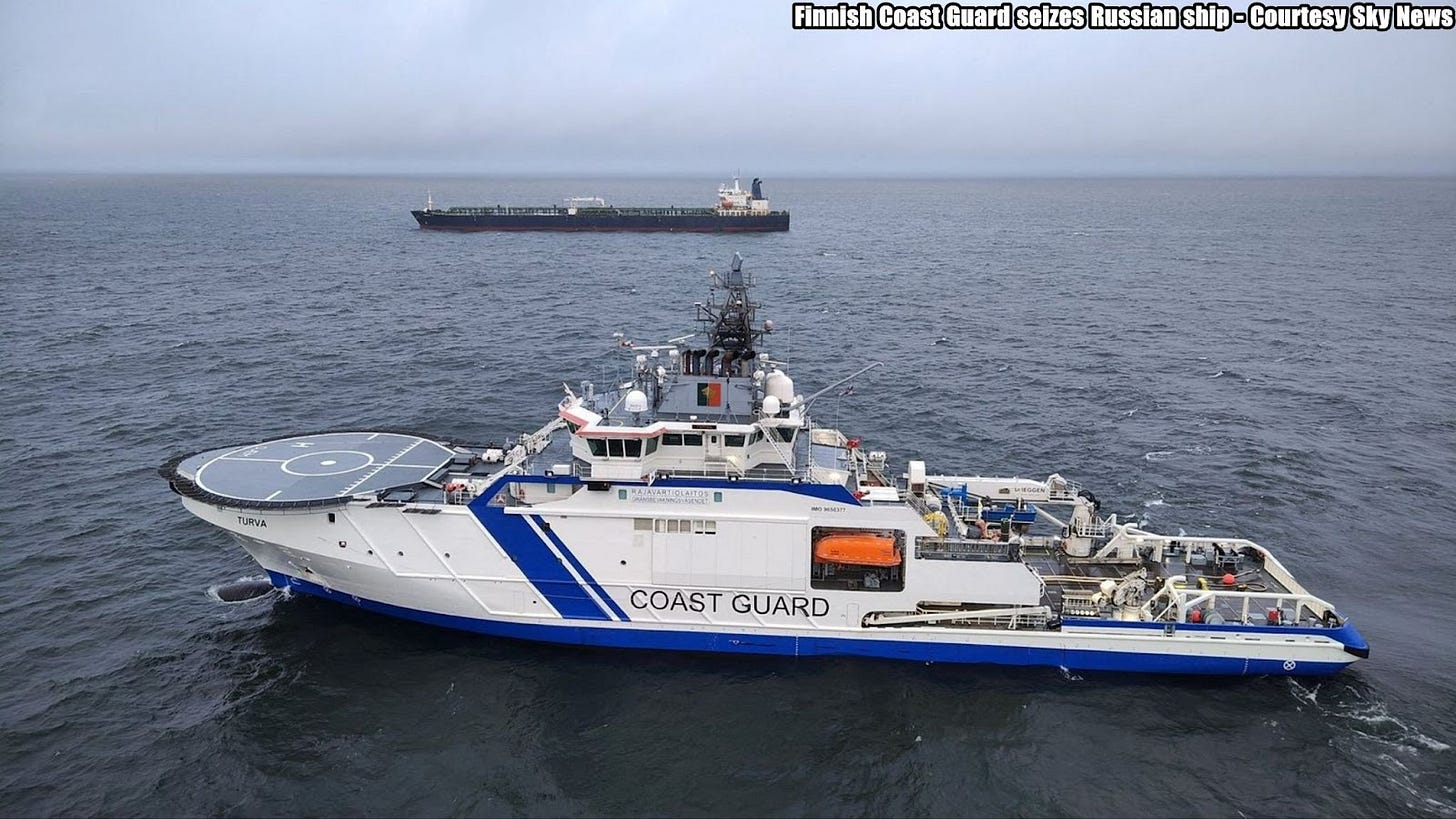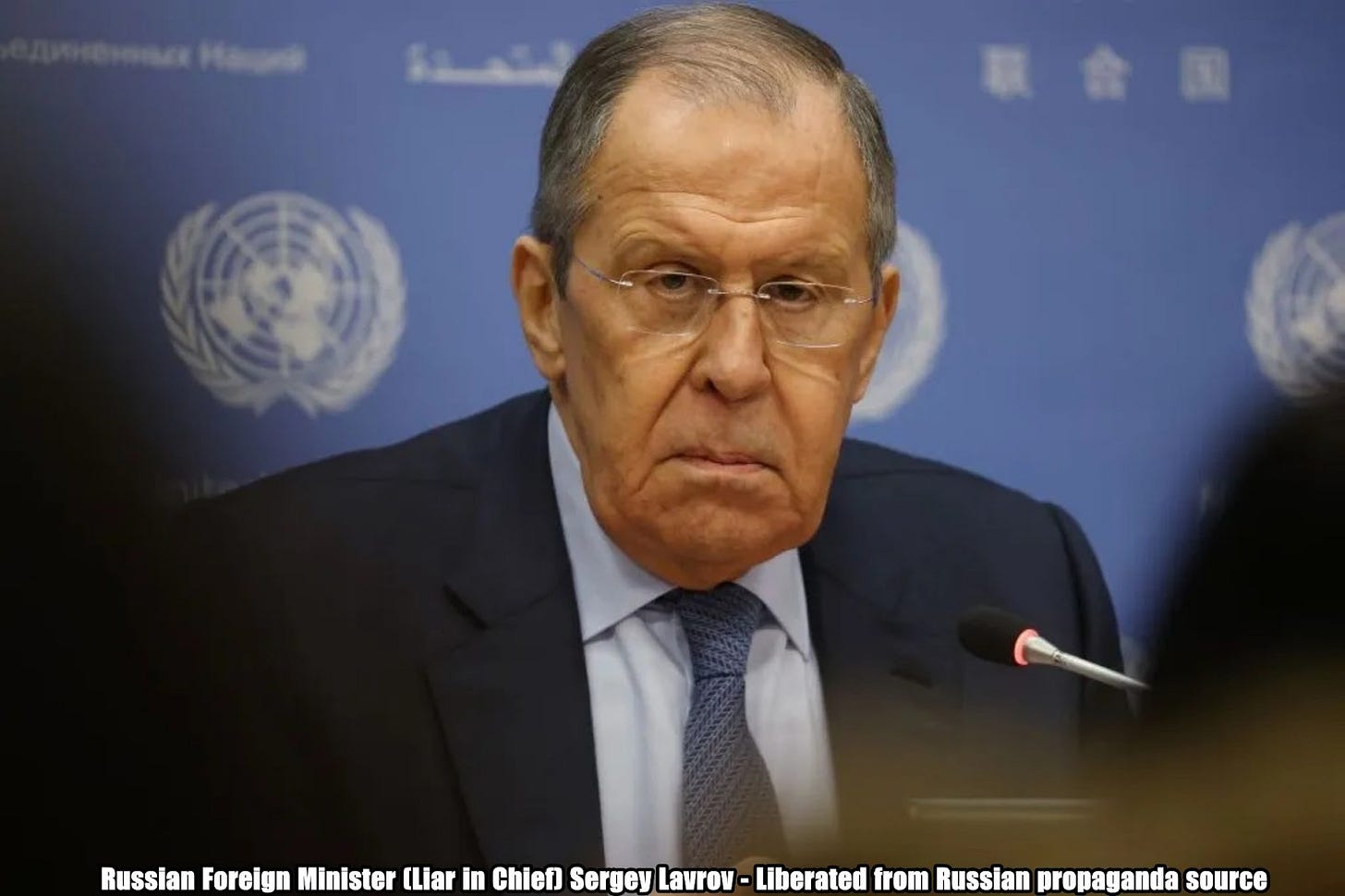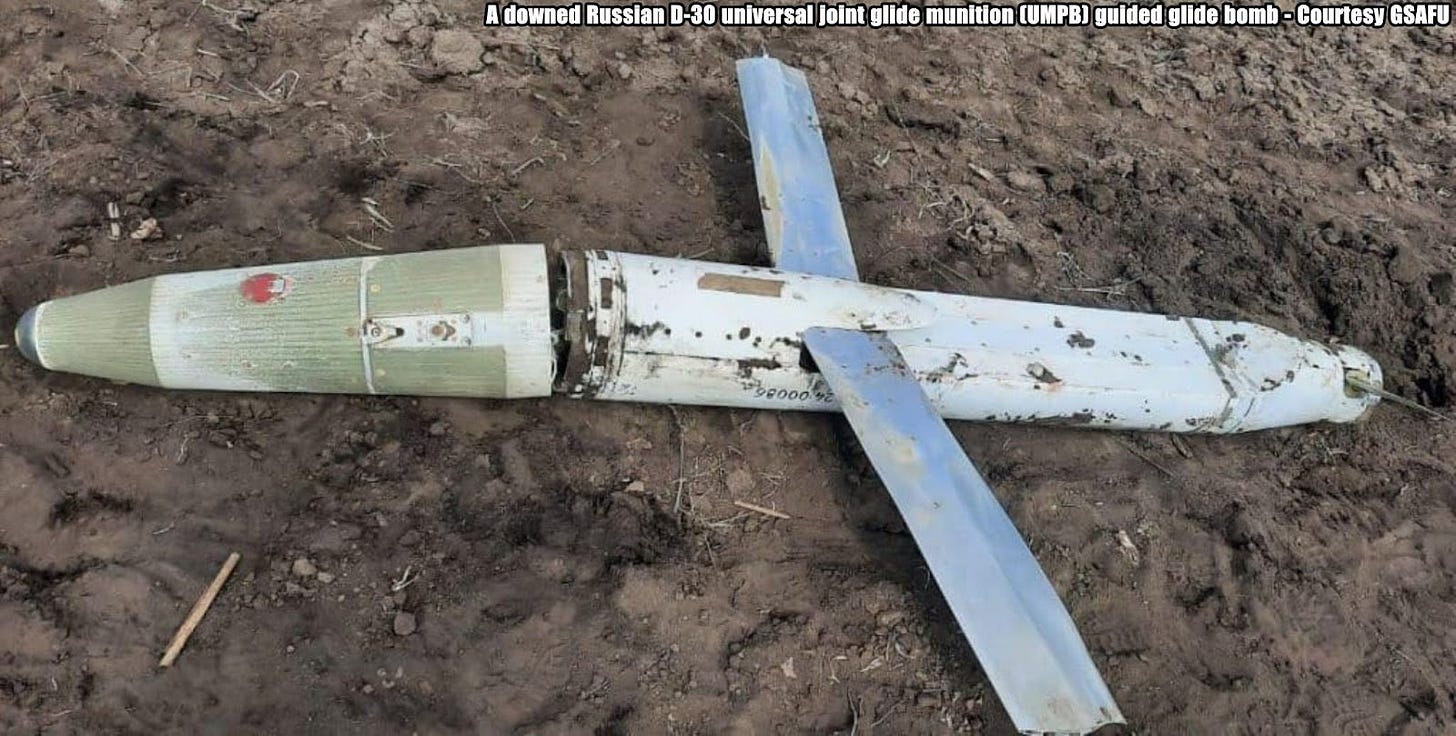Slava Ukraini! In early 2022 I began a Telegram channel aggregating news from a number of sources daily on the war in Ukraine. In June 2023 I began providing a daily draft for the Ukraine War Brief Podcast collecting news from over 70 sources daily, which formed the basis of the script. While the Podcast no longer exists I have continued to make this Brief available for my followers here on Substack for those who wish to keep up with the news from the war.
All the latest news on the Russo-Ukraine War 6 days per week
ALONG THE CONTACT LINE
GSAFU Morning Report
The General Staff of the Armed Forces of Ukraine in its Operational Information update at 22:00 on Dec 29 stated that day 1041 of the full-scale invasion of the Russian Federation against Ukraine was about to begin.
During the past two days, 320 combat engagements took place. Over the past 48 hours, the enemy carried out 1 missile strike, 6 air strikes, 1,517 drone strikes and more than 7,900 artillery strikes across the positions of Ukrainian forces.
At the same time, Ukrainian soldiers continue to inflict losses in manpower and equipment on the occupying troops, exhausting the enemy along the entire front line and continue to disrupt the plans of Russian occupiers to advance deeper into the territory of Ukraine.
-
Air Force Daily Report
On the night of December 29, 2024 (from 19:00 on December 28), the enemy launched six S-300/S-400 anti-aircraft guided missiles from the Belgorod region over the Kursk and Sumy regions, and also attacked with 10 Shahed strike UAVs and drones of other types from Crimea.
As a result of combat operations, units of anti-aircraft missile forces, electronic warfare, and mobile fire groups shot down 9 Shahed attack UAVs and drones of other types. All of them were in the Mykolaiv region.
21 ENEMY UAVS SHOT, 22 DRONES FAILED TO REACH THEIR TARGETS (LOCATIONALLY LOST)
➖➖➖➖➖➖➖➖➖
On the night of December 30, 2024 (from 7:00 p.m. on December 29), the enemy attacked with 43 Shahed attack UAVs and drones of other types from Primorsko-Akhtarsk, Russia.
As a result of combat work, units of anti-aircraft missile forces, electronic warfare and mobile fire groups shot down 21 attack UAVs of the "Shahed" type and other types of simulator drones in Kharkiv, Poltava, Chernihiv, Odesa, Donetsk and Dnipropetrovsk regions.
22 enemy drone simulators were lost in location (without negative consequences).
In Kharkiv and Odessa regions, private homes of citizens were damaged due to the fall of downed UAVs.
The Russian Border Incursion
The GSAFU reported that over the previous two days Defense Forces of Ukraine continued its operation in Kursk, where there were 9+38 combat engagements. The enemy made 1 missile strike, air strikes and carried out 400 artillery strikes on Ukrainian positions during the day
The Institute for the Study of War (ISW), a US based think tank, in its Russian Offensive Campaign Assessment reported that Russian forces continued assaults in the Ukrainian salient in Kursk Oblast on Dec 28 and 29 but did not make any confirmed advances. A Russian milblogger claimed on Dec 29 that Russian forces repelled a Ukrainian attack near Kruglenkoye (southeast of Korenevo).Ukrainian military observer Yuriy Butusov reported that Russian forces are deploying fewer armored vehicles in Kursk Oblast but have significantly increased their sabotage and reconnaissance operations. Elements of the Russian 11th Airborne (VDV) Brigade are reportedly operating in Cherkasskaya Konopelka (southeast of Sudzha).
The Khortytsia operational-strategic group
(Responsible for the northeastern part of Ukraine. )
Kharkiv Sector: Over the last day in this sector Ukrainian Defense Forces repelled 1 Russian attack in the area of Hatyshche.
Kupyansk Sector: Russian Forces carried out 6 offensive actions against Ukrainian defensive positions near Kucherivka, Petropavlivka and Lozova.
Lyman Sector: Russian Forces carried out 26 offensive actions against Ukrainian defensive positions near Zelenyi Hai, Pershotravneve, Nadiya, Hrekivka, Makiivka, Ivanka, Terny, Yampolivka and Bilohorivka (not shown). 3 engagements are ongoing.
Siversk Sector: In this sector, over the last day, there has been no significant change in the combat environment. Russian Forces carried out 1 offensive action against Ukrainian defensive positions near Zolotarivka.
Kramatorsk Sector: Russian Forces carried out 9 offensive actions against Ukrainian defensive positions near Chasiv Yar and Stupochky. 2 engagements are ongoing.
Toretsk Sector: Russian Forces carried out 7 offensive actions against Ukrainian defensive positions near Toretsk and Shcherbynivka.
The Tavria operational-strategic group
(Responsible for the central-eastern and southeastern part of Ukraine.)
Pokrovsk Sector : Over the last day, Russian Forces carried out 40 offensive actions against Ukrainian defensive positions mainly in the vicinity of Zelene Pole, Vozdvyzhenka, Myrolyubivka, Promin, Lysivka, Dachenske, Novoukrainka, Vovkove, Solone, Novovasylivka, Novoolenivka and Novoielyzavetivka. 8 engagements are ongoing.
Kurakhove Sector: Russia conducted 18 offensive actions over the last day in the vicinity of Ukrainka, Slovyanka, Petropavlivka, Dachne and Kurakhove. 3 engagements are ongoing.
Vremivka Sector: Russian forces made 19 attempts to break through Ukrainian defences in the vicinity of Pryvilne (not shown on map), Kostyanynopil, Yantarn, Kostiantynopolske and Uspenivka. 2 engagements are ongoing.
Orikhiv Sector: In this sector, over the last day, there has been no significant change in the combat environment.
The Odesa operational-strategic group
(Responsible for Kherson, Qırım, (also known as Crimea) and the Black Sea.)
Prydniprovsk Sector: In this sector, over the last day, there has been no significant change in the combat environment. Russian forces made 1 unsuccessful attempt to dislodge Ukrainian units from their positions on the right bank of the Dnipro.
Ukrainian Navy deems Russian naval logistics in Crimea inoperative
Ukrainian Navy spokesman Dmytro Pletenchuk said Russian naval logistics in Crimea are inoperative, marking a key milestone in degrading Russian operations in the Black Sea region. Ukrinform reports.
"Quantitative indicators are important, but qualitative indicators carry more weight. I’m not only referring to the ships Russia has lost but also to the critical stages we’ve now overcome. One such milestone is that the Russians have essentially abandoned Crimea in terms of the Black Sea Fleet. Another significant achievement is the near-complete destruction of Russia’s naval logistics supporting their forces in Crimea," Pletenchuk said.
He further highlighted that another crucial stage is the liberation of the Sea of Azov from the presence of Russian warships.
"This is by no means the full extent of our capabilities. Nevertheless, we are steadily progressing. This year was challenging for us, but it was even more difficult for the Russians in the Azov-Black Sea region. Now they fully understand that even the eastern coast of the Sea of Azov and the Krasnodar Territory are no longer secure zones for them. We’ve proven this, forcing them to adapt, which significantly complicates their operations," Pletenchuk added.
He explained that these developments allow the Ukrainian Navy to plan future operations with these achievements in mind.
TEMPORARILY OCCUPIED TERRITORIES
Collaborators plead for Kremlin’s help amid rescue worker crisis in occupied territories.
Collaborators in Ukraine's occupied territories are facing a critical shortage of rescue personnel and have turned to the Kremlin for assistance, the National Resistance Center (NRC) reported on Dec. 29.
The NRC highlighted that the shortage stems from two primary issues: the local population refuses to cooperate with collaborators, and most skilled professionals have either fled the occupied territories or are unwilling to work under the occupation regime.
As a result, the occupying forces are grappling with a dire lack of qualified workers and are compelled to bring in personnel from Russia.
This time, collaborators have appealed to the Kremlin for Ministry of Emergency Situations workers to address the severe shortfall in the occupied territories. The occupying administrations hope that Russian rescue workers will be deployed on a rotational basis to alleviate the situation.
THE HOME FRONT
US to send $15 billion to Ukraine using frozen Russian assets.
The United States will provide Ukraine with $15 billion, backed by future revenues from frozen Russian assets, Ukrainian Prime Minister Denys Shmyhal announced on Telegram Dec. 30.
The agreement was signed between Ukraine's Finance Ministry and the World Bank, Shmyhal said.
"These funds are part of the PEACE in Ukraine project and represent a portion of the $20 billion U.S. contribution under the G7 initiative, which will be allocated to social and humanitarian expenditures," Shmyhal wrote on Telegram.
"We thank the United States and the World Bank for implementing and supporting this initiative, which forces Russia to pay for its aggression against Ukraine," he added/
Shmyhal previously announced on Dec. 20 that Ukraine had already begun receiving U.S. funds under the framework of the G7's $50 billion loan program, covered by profits from frozen Russian assets.
On Dec. 24, Ukraine received $1 billion from the United States in profits from these assets, according to Shmyhal.
Meanwhile, the Russian Embassy in London condemned a similar plan by the U.K. to transfer more than 2 billion pounds ($2.5 billion) to Ukraine using frozen Russian assets, calling it a "fraudulent scheme."
The loans were agreed upon in July by G7 leaders — comprising the U.K., Canada, France, Germany, Italy, Japan, and the United States — along with senior European Union officials. The majority of the frozen Russian assets are held in EU countries.
Starlink to roll out direct-to-cell services in Ukraine.
Ukraine's leading mobile operator Kyivstar has signed an agreement with Elon Musk's Starlink to introduce direct-to-cell satellite connectivity, Reuters reports citing an announcement by Kyivstar's parent company VEON on Monday.
Direct-to-cell devices are connected to satellites equipped with modems that function like a cellphone tower, beaming phone signals from space directly to smartphones.
Kyivstar expects direct-to-cell services with messaging functionality to be operational in the fourth quarter of 2025, the telecoms group said in a joint statement. The operator will expand voice and data services in later stages.
Financial details of the agreement were not disclosed.
SpaceX-owned Starlink, which also provides critical internet connectivity to war-torn Ukraine and its military, launched its first set of satellites with direct-to-cell capabilities earlier this year.
The satellite broadband firm has struck deals with local providers for direct-to-cell services in the U.S. and seven other countries, including Japan and New Zealand.
Ukraine will be one of the first countries in the world with direct-to-cell connectivity and the first conflict zone where Starlink will roll out this technology, according to its website.
Russia has ramped up its efforts to jam signals between Starlink satellites and ground terminals in Ukraine since 2022.
The agreement comes as Musk, Starlink's owner, grows more engaged with the incoming Trump administration in the U.S. and its Ukraine strategy.
In November, he joined a call between President-elect Donald Trump and Ukrainian President Volodymyr Zelenskyy in which he said he would continue supplying Starlink satellites to Ukraine, Axios reported.
Russian drones hit Odesa Oblast, damaging residential buildings overnight.
Russian forces attacked Ukraine's Odesa Oblast with drones overnight, damaging five homes in the Rozdilna district,New Voice reported citing regional governor Oleh Kiper on Telegram on Dec. 30.
Air defenses intercepted most drones launched by Russian forces into Ukraine's Odesa Oblast, according to regional governor Oleh Kiper.
The attack damaged windows, facades, and roofs of buildings, but no casualties were reported.
Overnight on Dec. 30, several oblasts of Ukraine were on alert for drone strikes, with explosions reported in Sumy.
The Air Force noted suicide drones in Odesa Oblast near the border with Moldova.
RUSSIAN WORLD
Russian Man Arrested for Organizing LGBTQ+ Tours Dies in Police Custody
A Russian man arrested earlier this year for organizing LGBTQ+ travel tours has died in pre-trial detention, rights groups and Russian state media reported Sunday. The Moscow Times reports.
Andrei Kotov, the director of the travel agency Men Travel, was charged last month with taking part and organizing "extremist" activities.
The OVD-Info rights group cited Kotov's lawyer as saying investigators told her that he committed suicide early Sunday. State media also reported that he killed himself.
OVD-Info said that the 40-year-old Kotov reported being beaten during his arrest last month. Last month, state media published a video of him being questioned on the floor by law enforcement authorities.
Russia's Supreme Court banned the so-called "international LGBT movement" as "extremist" last year, effectively criminalizing any form of LGBTQ+ rights advocacy in the country.
INTERNATIONAL NEWS
Biden announces $2.5 billion security assistance package for Ukraine
U.S. President Joe Biden announced a new security assistance package for Ukraine worth nearly $2.5 billion on Dec. 30.
The package includes a $1.25 billion "drawdown package" of military equipment for Ukraine and $1.22 billion under the Ukraine Security Assistance Initiative (USAI), a Pentagon-led program that procures arms for Ukraine through contracts with U.S. defense companies.
According to a White House statement, the resources will provide both immediate and long-term military support, including air defense systems, artillery, and other critical weaponry.
"As I committed earlier this year, the Department of Defense has now allocated all remaining USAI funds appropriated by Congress in the supplemental that I signed in April, and my Administration is fully utilizing the funding appropriated by Congress to support the drawdown of U.S. equipment for Ukraine," Biden said in the statement.
"I’ve directed my Administration to continue surging as much assistance to Ukraine as quickly as possible — including drawing down older U.S. equipment for Ukraine, rapidly delivering it to the battlefield, and then revitalizing the U.S. defense industrial base to modernize and replenish our stockpiles with new weapons," he added.
The announcement comes just weeks before Donald Trump takes office next month.
Trump’s support for Ukraine hangs in the air as analysts and politicians try to gauge his plans to bring peace to Ukraine, as he promised to end the war within "24 hours" after reelection without revealing details.
Under the Biden administration, the U.S. provided more than $60 billion in military aid to Ukraine.
According to the statement, the U.S. Department of Defense "is in the process of delivering hundreds of thousands of artillery rounds, thousands of rockets, and hundreds of armored vehicles which will strengthen Ukraine’s hand as it heads into the winter."
"At my direction, the United States will continue to work relentlessly to strengthen Ukraine’s position in this war over the remainder of my time in office," Biden said.
Azerbaijan Accuses Russia Of Trying To Hide Causes Of Plane Crash
Azerbaijan's president Ilham Aliyev on Sunday said the Azerbaijan Airlines jet that crashed this week was shot at from Russia and called for Moscow to admit "guilt" in the disaster. AFP reports.
On Saturday, Russian President Vladimir Putin apologised over the crash, but stopped short of accepting that it might have been hit by Russian fire.
"The facts are that the Azerbaijani civilian plane was damaged from the outside over Russian territory, near the city of Grozny, and almost lost control," Aliyev said in televised comments, according to state news agency, Azertag.
"We also know that electronic warfare systems put our plane out of control," he said, adding that "at the same time, as a result of fire from the ground, the tail of the plane was also severely damaged."
He said Baku regretted that Moscow "put forward theories" that "clearly showed the Russian side wanted to cover" up the issue.He said the jet which crashed this week, killing 38 of the 67 people onboard, was hit "by accident" by Russia.
"Of course, our plane was hit by accident. Of course, there can be no talk of a deliberate act of terror here," Aliyev said.
"Therefore, admitting the guilt, apologizing in a timely manner to Azerbaijan, which is considered a friendly country, and informing the public about this – all these were measures and steps that should have been taken," he said.
Moscow had earlier said that Grozny, where the plane was due to land but instead crashed in western Kazakhstan, was attacked by Ukrainian drones that day
Speculation has swirled for days that Russia accidentally shot down the plane, with the United States weighing in Friday, saying it had "early indications" the plane was shot down.
After Finland seizes Russian ship, Estonia launches naval patrols
Estonia launched a naval operation to protect its undersea power cables Friday, following the suspected sabotage of another cable in the Baltic Sea by a ship belonging to Russia’s so-called shadow fleet. Politico reported on Dec 27.
On Thursday, Finnish authorities seized the Russian oil tanker Eagle S after the country’s police opened a criminal investigation into suspected involvement by the shadow fleet, a group of aging ships trading sanctioned Russian fuel behind murky ownership structures.
The Eagle S was carrying 35,000 tons of unleaded petrol that had been loaded in Russian ports. The tanker had slowed significantly at the time the submarine cable, known as Estlink 2, was damaged on Christmas Day, according to Finnish media reports.
Four other telecommunications cables between Finland and Estonia and between Finland and Germany were also damaged.
“We’ve decided to send our navy close to Estlink 1 to defend and secure our energy connection with Finland,” Estonian Defense Minister Hanno Pevkur said in a post on Twitter.
Speaking on a morning local radio show, Pevkur said he had proposed a joint patrol with Finland.
“Not just with Finland, but with all of our allies, really. The Finns are discussing this today, and I believe they will join us. Additionally, we agreed yesterday that NATO will engage on a military level,” he said.
The damaging of Estlink 2 is the latest incident in the Baltic Sea involving the breaking of undersea infrastructure. “Three cases in one year cannot be a coincidence,” Finnish President Alexander Stubb said in a press conference on Friday. Stubb said that NATO’s presence in the area must be increased.
NATO Secretary General Mark Rutte said he had spoken to both Stubb and Estonian Prime Minister Kristen Michal.
“NATO will enhance its military presence in the Baltic Sea,” he said in a post on Twitter.
The EU’s foreign policy chief Kaja Kallas said that Russia’s shadow fleet “threatens security and the environment, while funding Russia’s war budget.”
“We will propose further measures, including sanctions, to target this fleet,” she added on Twitter, calling for the strengthening of cooperation in protecting undersea cables.
Russia rejects Trump team's reported peace deal proposals on Ukraine
Russia is dissatisfied with the reported peace deal proposals on Ukraine from U.S. President-elect Donald Trump’s team, Russian Foreign Minister Sergey Lavrov said on Dec. 29, The Kyiv Independent reported citing Russian propaganda outlet TASS.
Earlier reports from the Wall Street Journal indicated that Trump’s team is considering a plan to delay Ukraine’s NATO membership by at least 20 years in exchange for continued Western arms supplies and the deployment of European peacekeepers to monitor a ceasefire.
Lavrov said the proposal, as outlined in leaks and Trump’s Dec. 12 Time interview, suggests "freezing hostilities along the current line of contact and transferring the responsibility of confronting Russia to Europe."
"We are certainly not satisfied with the proposals sounding on behalf of representatives of the president-elect's team," Lavrov said, specifically rejecting the idea of introducing European peacekeepers in Ukraine.
Reports suggest that Trump discussed these ideas during a Dec. 7 meeting in Paris with Ukrainian President Volodymyr Zelenskyy and French President Emmanuel Macron. Trump reportedly emphasized Europe’s need to take the lead in deterring Russian aggression.
Lavrov noted that Moscow has received no official signals from Washington regarding these proposals, adding that policy remains under the Biden administration until Trump’s inauguration on Jan. 20.
Lavrov expressed Russia’s "willingness to engage" with the new U.S. administration, provided Washington takes the "first move" to restore dialogue severed after the start of Russia’s invasion.
Russian President Vladimir Putin said on Dec. 26 that Russia aims to "end the conflict" in 2025 while reiterating hopes for a front-line success. Following Putin's comments, Lavrov ridiculed the possibility of a ceasefire, adding that "a ceasefire is a road to nowhere."
Putin expressed openness to dialogue with Trump but maintained Russia’s firm demands, including no territorial concessions and a rejection of Ukraine’s NATO membership.
Poland prepared to help if Slovakia cuts off power to Ukraine.
Poland has expressed willingness to increase electricity exports to Ukraine if Slovakia halts its supply, Bloomberg reported on Dec. 29, citing an unnamed Polish official.
Slovak Prime Minister Robert Fico threatened to stop electricity exports to Ukraine on Dec. 27, in response to Ukraine's decision to no longer transit Russian gas in 2025. Ukraine relies on energy imports from the EU amid Russian aerial attacks on energy infrastructure.
"If it is unavoidable, we will halt the electricity supplies that Ukraine needs during grid outages," Fico said in response to Ukraine's plans to no longer transit Russian gas on Dec. 27.
Poland is ready to increase domestic electricity production if Slovakia halts the delivery of backup power supplies to Ukraine, an unnamed Polish official said, adding that the country is ready to compensate for any shortage that Ukraine's strained system would suffer from, the official said.
Ukraine is a key transit route for Russian gas to reach the EU. While much of the EU has abandoned Russian gas, Slovakia has remained heavily reliant on Russian gas imports.
Ukraine's contract to transit Russian gas expires on Dec. 31. Ukraine will not renew its contract, President Volodymyr Zelensky said on Dec. 19.
"It appears that Putin has ordered Fico to open a second energy front against Ukraine, at the expense of the interests of the people of Slovakia," Zelenskyy said on Dec. 28 in response to Fico's threats.
Energy companies from Austria, Hungary, Italy, and Slovakia have called for the continued transit of Russian gas via Ukraine.
EU sanctions have been reluctant to target Russian gas imports due to the bloc's reliance. The EU first imposed sanctions on Russian gas in June, over two years after the start of Russia's full-scale invasion of Ukraine.
Fico's stance marks a shift from Slovakia's previous commitment to increase electricity supplies to Ukraine in July.
MILITARY & TECH
Ukraine innovates to combat Russian glide bombs.
The Institute for the Study of War (ISW), a US based think tank, in its Russian Offensive Campaign Assessment reported that Ukrainian forces are successfully innovating to combat Russian guided glide bomb strikes against Kharkiv Oblast. Kharkiv Oblast Military Administration Head Oleh Synehubov stated on Dec 29 that Russian forces started experimenting with and conducting D-30 universal joint glide munition (UMPB) guided glide bomb strikes against Kharkiv Oblast in March 2024 and have since modified them to have a range of up to 80 kilometers. Synehubov stated that Russian forces started launching guided glide bombs from within Russian airspace roughly 40 kilometers away from the international Russian-Ukrainian border, allowing the bombs to strike targets up to 40 kilometers inside Ukraine.
Kharkiv Oblast Police Force's Explosive Department Head Volodymyr Bezruk stated that D-30 guided glide bombs can deviate from a target by up to 50 meters and that the damages from D-30 UMPB and unguided FAB-250/500 glide bombs are similar because both bombs use the same type of warhead. Bezruk stated that Ukrainian forces are using machine guns and electronic warfare (EW) interference to down and divert guided glide bombs since glide bombs’ lack of a thermal energy signature prevents portable air defense systems from targeting the bombs.
Ukrainian Kharkiv Group of Forces Spokesperson Lieutenant Colonel Yevheniy Romanov stated that Russian forces launched the most guided glide bombs against Kharkiv City in May and September 2024 but that Russian forces have not conducted any guided glide bomb strikes on Kharkiv City since November 2024 and have been using aviation assets less frequently in the northern Kharkiv Oblast border area.
Romanov noted that Ukrainian forces recently struck several large ammunition depots within Russia that stored guided glide bombs, limiting the Russian military's guided glide bomb stockpiles. The spokesperson of a Ukrainian brigade operating in the Lyman direction stated that Russian forces conducted roughly three to four guided glide bombs strikes per day in the Lyman direction in November 2024 but are now conducting strikes with Shahed drones instead.
That’s it for today’s Brief folks if you would like to keep up with events in Ukraine daily please consider subscribing.
Feel free to share this update with your friends. Heroyam Slava!






